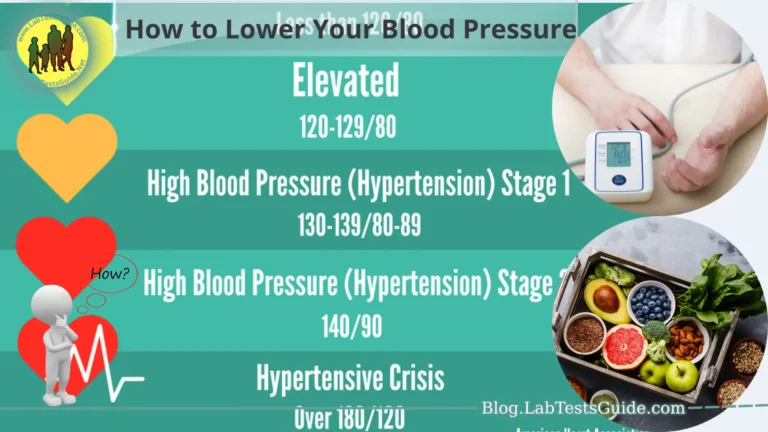Constipation is a common digestive issue that affects people of all ages and can lead to discomfort and inconvenience. It occurs when bowel movements become infrequent or challenging, often resulting in hard and dry stools that are difficult to pass. While occasional constipation is usually not a cause for concern, chronic constipation or repeated occurrences can negatively impact a person’s quality of life.

In this guide, we will explore various methods to relieve and prevent constipation. We will discuss the common causes of constipation, its symptoms, and when it’s necessary to seek medical attention. The main focus will be on practical and natural approaches to alleviate constipation and make lifestyle changes to promote regular bowel movements.
What is Constipation?
- Definition: Constipation is a common digestive issue characterized by infrequent, difficult, or painful bowel movements.
- Stool Consistency: Constipated individuals often pass hard, dry, and lumpy stools, making them challenging to evacuate.
- Frequency: Normal bowel movement frequency can vary, but generally, less than three bowel movements per week may indicate constipation.
- Causes: Constipation can result from various factors, including a low-fiber diet, inadequate water intake, lack of physical activity, certain medications, and medical conditions.
- Symptoms: Common symptoms of constipation include straining during bowel movements, feeling of incomplete evacuation, abdominal discomfort, and bloating.
- Risk Factors: Certain individuals are more prone to constipation, such as older adults, pregnant women, those with a sedentary lifestyle, and those on certain medications.
- Complications: Chronic constipation can lead to complications like hemorrhoids, anal fissures, and fecal impaction.
- Diagnosis: Healthcare professionals diagnose constipation based on medical history, physical examination, and sometimes additional tests if an underlying condition is suspected.
- Treatment: Treatment options include dietary changes, increasing fiber intake, staying hydrated, lifestyle modifications, and occasionally the use of laxatives or medications.
- Prevention: Preventive measures include maintaining a balanced diet, regular physical activity, drinking plenty of water, and establishing a consistent toilet routine.
How to Relieve and Prevent Constipation:
- Increase Fiber Intake: Consume more fiber-rich foods such as fruits, vegetables, whole grains, and legumes. Fiber adds bulk to the stool and helps it move through the intestines more easily.
- Stay Hydrated: Drink an adequate amount of water throughout the day. Sufficient hydration softens the stool, making it easier to pass.
- Regular Physical Activity: Engage in regular exercise to stimulate bowel movements and promote better digestion.
- Try Natural Laxatives: Incorporate natural laxatives into your diet, such as prunes or prune juice, which have natural compounds that help stimulate bowel movements.
- Over-the-Counter Laxatives: If needed, consider using over-the-counter laxatives as a short-term solution, but use them sparingly and as directed.
- Avoid Holding in the Stool: Respond promptly to the urge to have a bowel movement to avoid making the stool more difficult to pass.
- Establish a Toilet Routine: Try to use the bathroom at the same time each day to help regulate bowel movements.
- Create a Relaxing Bathroom Environment: Make the bathroom environment comfortable and stress-free to promote easier bowel movements.
- Limit Processed Foods and Refined Sugars: Reduce the intake of processed foods and sugary snacks, as they can contribute to constipation.
- Probiotics and Fermented Foods: Consume probiotics or fermented foods like yogurt or kimchi to promote a healthy gut and improve bowel regularity.
- Manage Stress: High levels of stress can affect digestion. Practice stress-reducing techniques such as meditation, deep breathing, or yoga.
- Gradual Diet Changes: If increasing fiber intake, do it gradually to allow your digestive system to adjust and prevent bloating or discomfort.
Common Causes of Constipation:
- Low-Fiber Diet: A diet lacking in fiber can lead to constipation as fiber adds bulk to the stool, making it easier to pass through the digestive tract.
- Inadequate Water Intake: Insufficient hydration can result in hard and dry stools, making them difficult to pass.
- Lack of Physical Activity: A sedentary lifestyle can slow down bowel movements and contribute to constipation.
- Certain Medications: Some medications, such as certain pain relievers, antacids with aluminum, antidepressants, and iron supplements, can cause constipation as a side effect.
- Ignoring the Urge to Have a Bowel Movement: Ignoring or suppressing the natural urge to have a bowel movement can lead to stool becoming harder and more challenging to pass.
- Changes in Routine or Diet: Traveling, sudden dietary changes, or disruptions to daily routines can impact bowel regularity and lead to constipation.
- Pregnancy: Hormonal changes during pregnancy can slow down bowel movements and result in constipation.
- Aging: As people age, the digestive system can slow down, leading to an increased risk of constipation.
- Medical Conditions: Certain medical conditions, such as irritable bowel syndrome (IBS), hypothyroidism, diabetes, and neurological disorders, can contribute to constipation.
- Bowel Obstruction: Physical blockages in the intestines due to tumors, strictures, or impacted stool can cause constipation.
- Emotional Stress: High levels of stress or anxiety can affect bowel movements and lead to constipation.
- Certain Foods: Some individuals may experience constipation after consuming certain foods like dairy products or processed foods.
- Hormonal Imbalances: Hormonal changes, such as those occurring during menstruation or menopause, can influence bowel regularity.
Symptoms of Constipation:
- Infrequent Bowel Movements: One of the primary symptoms of constipation is having fewer bowel movements than usual. This may mean passing stools less than three times per week.
- Difficulty Passing Stool: Constipated individuals often experience difficulty or straining during bowel movements. The stool may be hard, dry, and difficult to expel.
- Feeling of Incomplete Evacuation: After a bowel movement, some people with constipation may still feel like there’s more stool to pass, even though they have tried to empty their bowels.
- Abdominal Discomfort and Bloating: Constipation can lead to abdominal discomfort, cramping, and bloating. The abdomen may feel distended or full.
- Passing Small, Hard Stools: Instead of having regular-sized stools, constipated individuals may pass small, pellet-like stools.
- Experiencing Rectal Blockage: In severe cases of constipation, the stool can become impacted in the rectum, leading to a sensation of blockage.
- Straining During Bowel Movements: Straining during bowel movements can be painful and may cause hemorrhoids or anal fissures.
- Foul-Smelling Gas: Constipation can lead to an accumulation of gas in the intestines, resulting in foul-smelling flatulence.
- Decreased Appetite: Some individuals with constipation may experience a reduced appetite or feel full even after consuming small amounts of food.
- Nausea and Fatigue: In chronic cases of constipation, individuals may experience nausea and fatigue as a result of the body’s struggle to eliminate waste.
- Back Pain: Severe constipation can cause back pain, as the pressure from retained stool affects the lower back.
How to Relieve Constipation:
- Increase Fiber Intake: Consume more fiber-rich foods such as fruits, vegetables, whole grains, and legumes. Fiber adds bulk to the stool and helps it move through the intestines more easily.
- Stay Hydrated: Drink an adequate amount of water throughout the day. Sufficient hydration softens the stool, making it easier to pass.
- Regular Physical Activity: Engage in regular exercise to stimulate bowel movements and promote better digestion.
- Try Natural Laxatives: Incorporate natural laxatives into your diet, such as prunes or prune juice, which have natural compounds that help stimulate bowel movements.
- Gentle Abdominal Massage: Massaging the abdomen in a clockwise motion can help stimulate bowel movement and alleviate constipation.
- Create a Relaxing Bathroom Environment: Make the bathroom environment comfortable and stress-free to promote easier bowel movements.
- Use a Squatting Position: When sitting on the toilet, use a stool or footrest to elevate your feet slightly, mimicking a squatting position. This can help align the rectum and make passing stool easier.
- Over-the-Counter Laxatives (Short-term use): If needed, consider using over-the-counter laxatives as a short-term solution, but use them sparingly and as directed.
- Prune Juice or Prunes: Prune juice and prunes are known for their natural laxative effects and can be beneficial in relieving constipation.
- Biofeedback Therapy: In some cases, biofeedback therapy can help improve the coordination of the pelvic floor muscles and assist with bowel movements.
- Prescription Medications (if necessary): In severe or chronic cases, a healthcare professional may prescribe specific medications to relieve constipation.
Dietary Tips to Prevent Constipation:
- Include Fiber-Rich Foods: Incorporate a variety of fiber-rich foods in your diet, such as whole grains, fruits, vegetables, nuts, and seeds. Aim for at least 25 to 30 grams of fiber per day for adults.
- Whole Grains and Cereals: Choose whole-grain bread, brown rice, quinoa, oats, and other whole grains over refined grains for higher fiber content.
- Fresh Fruits and Vegetables: Consume a diverse range of fresh fruits and vegetables daily, as they provide essential vitamins, minerals, and dietary fiber.
- Nuts and Seeds: Snack on nuts and seeds like almonds, walnuts, chia seeds, and flaxseeds, which are rich in fiber and healthy fats.
- Probiotics and Fermented Foods: Incorporate probiotics and fermented foods like yogurt, kefir, sauerkraut, and kimchi into your diet to promote a healthy gut and regular bowel movements.
- Limit Processed Foods and Refined Sugars: Reduce the intake of processed foods, sugary snacks, and desserts, as they often lack fiber and can contribute to constipation.
- Drink Plenty of Water: Stay adequately hydrated by drinking enough water throughout the day. Water helps soften the stool and aids in smooth bowel movements.
- Herbal Teas for Digestion: Consider drinking herbal teas like peppermint, chamomile, or ginger tea, which can have soothing effects on the digestive system.
- Prunes and Prune Juice: Prunes and prune juice are natural laxatives and can help prevent constipation when consumed regularly.
- Limit Dairy (if sensitive): Some individuals may experience constipation or have difficulty digesting dairy products. If you suspect dairy intolerance, try reducing or eliminating dairy from your diet.
- Gradual Diet Changes: If you’re increasing your fiber intake, do it gradually to allow your digestive system to adjust and prevent bloating or discomfort.
- Chew Food Thoroughly: Chew your food slowly and thoroughly to aid digestion and ease the passage of food through the digestive tract.
Lifestyle Changes to Prevent Constipation:
- Regular Exercise: Engage in regular physical activity such as walking, jogging, swimming, or yoga to stimulate bowel movements and promote better digestion.
- Establish a Toilet Routine: Try to use the bathroom at the same time each day, preferably after meals or when you feel the natural urge to have a bowel movement.
- Reduce Stress and Anxiety: High levels of stress can impact bowel function. Practice stress-reducing techniques like meditation, deep breathing exercises, or mindfulness to promote relaxation.
- Avoid Holding in the Stool: Respond promptly to the urge to have a bowel movement and avoid suppressing the natural need to go.
- Create a Relaxing Bathroom Environment: Make the bathroom a comfortable and stress-free space. Take your time and avoid rushing during bowel movements.
- Toilet Posture: Use a squatting position when sitting on the toilet, as it can help align the rectum for easier bowel movements. Consider using a stool or footrest to elevate your feet slightly.
- Adequate Sleep: Ensure you get enough quality sleep each night, as proper sleep helps regulate various bodily functions, including digestion.
- Limit Caffeine and Alcohol: Both caffeine and alcohol can contribute to dehydration, which may worsen constipation. Drink them in moderation and balance with sufficient water intake.
- Gradual Changes in Diet: If you’re making significant dietary changes to prevent constipation, do so gradually to allow your body to adjust.
- Regular Bowel Habits: Try to establish a consistent pattern of bowel movements by visiting the bathroom at the same time each day.
- Adequate Time for Bowel Movements: Allocate enough time in the morning or whenever you feel the urge to have a bowel movement, so you are not rushed or interrupted.
- Stay Hydrated: Drink plenty of water throughout the day to keep the stool soft and easy to pass.
When to Seek Medical Attention:
- Chronic Constipation: If you have been experiencing constipation regularly for an extended period, despite making dietary and lifestyle changes, it’s essential to consult a healthcare professional. Chronic constipation could be a symptom of an underlying medical condition that requires further evaluation and management.
- Severe Abdominal Pain: If you experience severe or persistent abdominal pain, especially accompanied by bloating or distension, it could be a sign of a more serious issue, and medical attention is necessary.
- Bleeding from the Rectum: If you notice blood in your stool or on the toilet paper, it’s essential to seek medical attention promptly. Rectal bleeding can have various causes, some of which may require immediate evaluation.
- Changes in Bowel Habits: Any sudden and unexplained changes in your bowel habits, such as alternating between constipation and diarrhea, should be discussed with a healthcare professional.
- Unexplained Weight Loss: If you are losing weight without trying or experiencing unexplained loss of appetite, it could indicate an underlying health problem that requires medical investigation.
- Constipation in Children and Elderly: In children and older adults, constipation can have different causes and may require special attention. If you notice persistent constipation in a child or an elderly individual, seek medical advice.
- Fecal Impaction: If you suspect or have been diagnosed with fecal impaction, a condition where stool becomes hard and impacted in the rectum, it requires immediate medical attention and intervention.
- Use of Over-the-Counter Laxatives: If you find yourself relying excessively on over-the-counter laxatives without relief or experience adverse effects, consult a healthcare professional.
- Previous History of Colon Issues: If you have a history of colon issues or are at increased risk of colorectal problems due to family history or other factors, regular check-ups with a healthcare professional are crucial.
FAQs:
What is constipation?
Constipation is a common digestive issue characterized by infrequent, difficult, or painful bowel movements. It occurs when stool moves slowly through the intestines, resulting in hard and dry stools that are challenging to pass.
What causes constipation?
Constipation can be caused by various factors, including a low-fiber diet, inadequate water intake, lack of physical activity, certain medications, medical conditions, and ignoring the urge to have a bowel movement.
How can I relieve constipation naturally?
To relieve constipation naturally, you can increase fiber intake, stay hydrated, engage in regular physical activity, try natural laxatives like prunes, create a relaxing bathroom environment, and establish a consistent toilet routine.
When should I seek medical attention for constipation?
You should seek medical attention for constipation if you experience chronic constipation, severe abdominal pain, bleeding from the rectum, unexplained weight loss, changes in bowel habits, or constipation in children or elderly individuals.
Can stress cause constipation?
Yes, stress and anxiety can contribute to constipation. High levels of stress can affect the digestive system and slow down bowel movements.
What foods can help prevent constipation?
Foods that can help prevent constipation include fiber-rich fruits, vegetables, whole grains, nuts, seeds, probiotics, fermented foods, and drinking plenty of water.
How much water should I drink to prevent constipation?
Aim to drink at least eight 8-ounce glasses of water per day (about 2 liters) to stay adequately hydrated and help prevent constipation.
Are there any foods that can worsen constipation?
Certain foods can exacerbate constipation, such as processed foods, refined sugars, excessive dairy, and low-fiber foods.
Is constipation a sign of a serious health condition?
In most cases, constipation is not a sign of a serious health condition. However, chronic or severe constipation may indicate an underlying health issue that requires medical evaluation and treatment.
Conclusion:
Constipation is a common digestive issue that can cause discomfort and inconvenience. It occurs when bowel movements become infrequent, difficult, or painful due to various factors such as a low-fiber diet, inadequate water intake, lack of physical activity, and certain medications. While occasional constipation is usually not a cause for concern, chronic or severe constipation may indicate an underlying health problem that requires medical attention.






